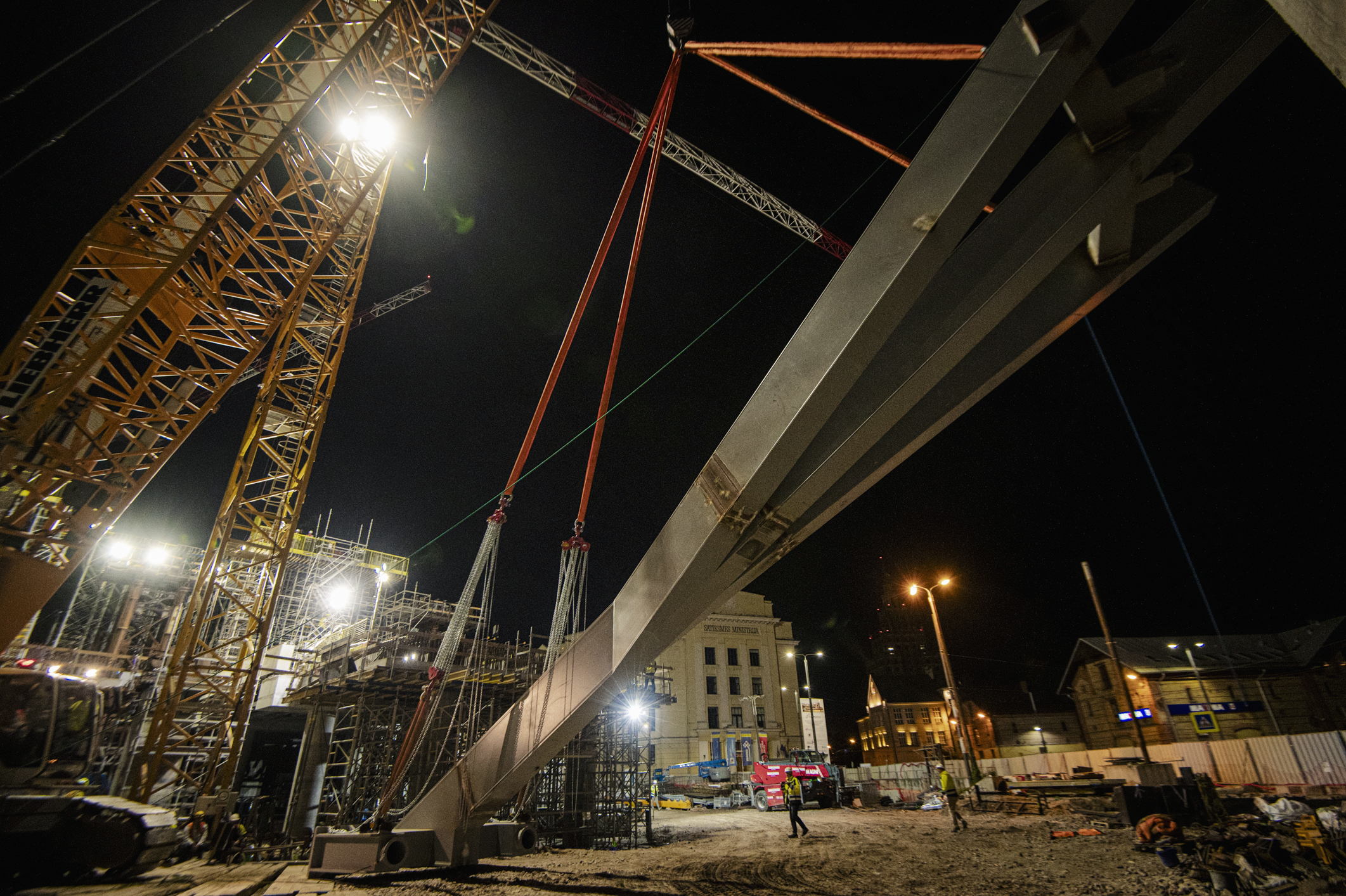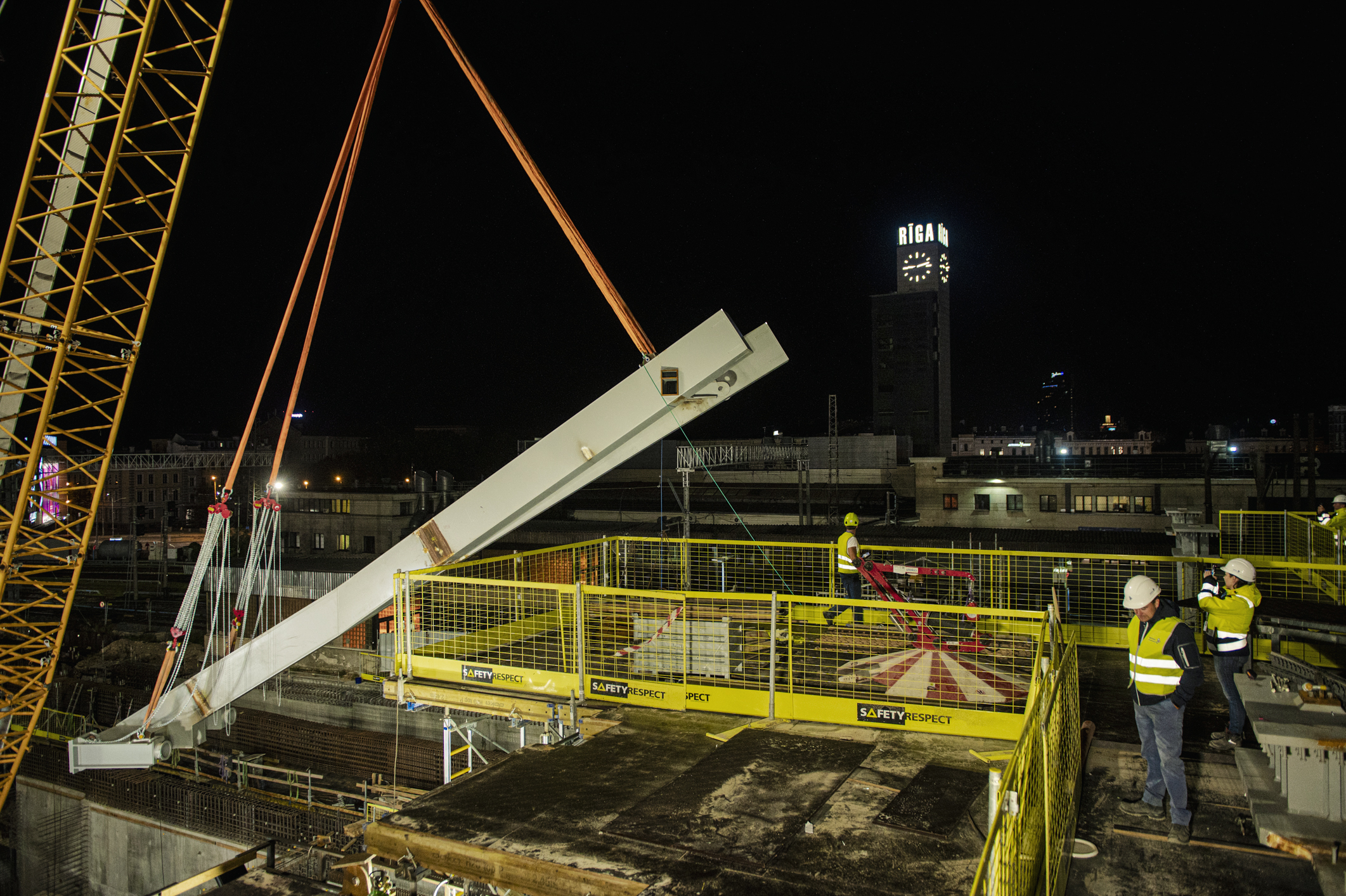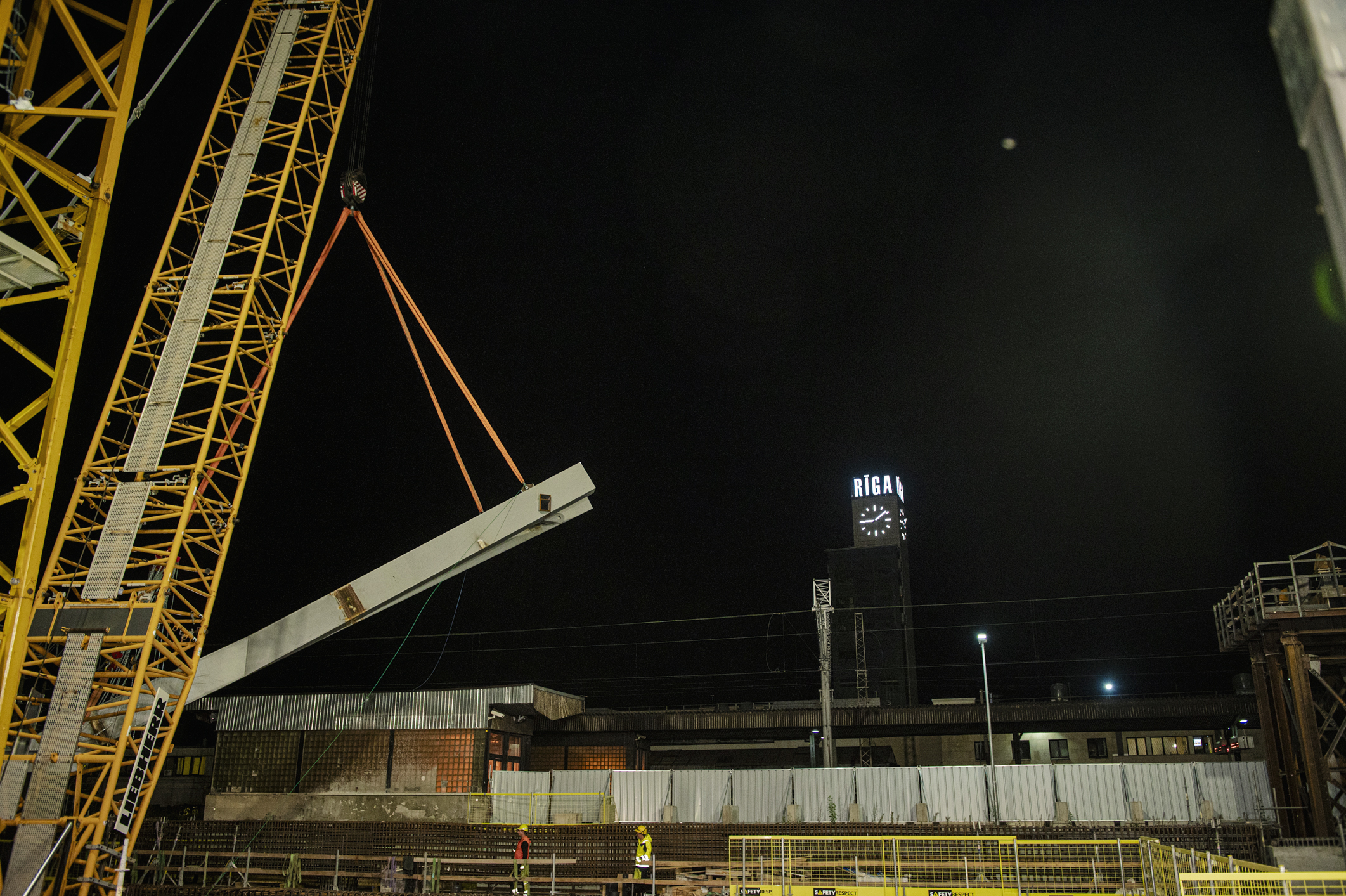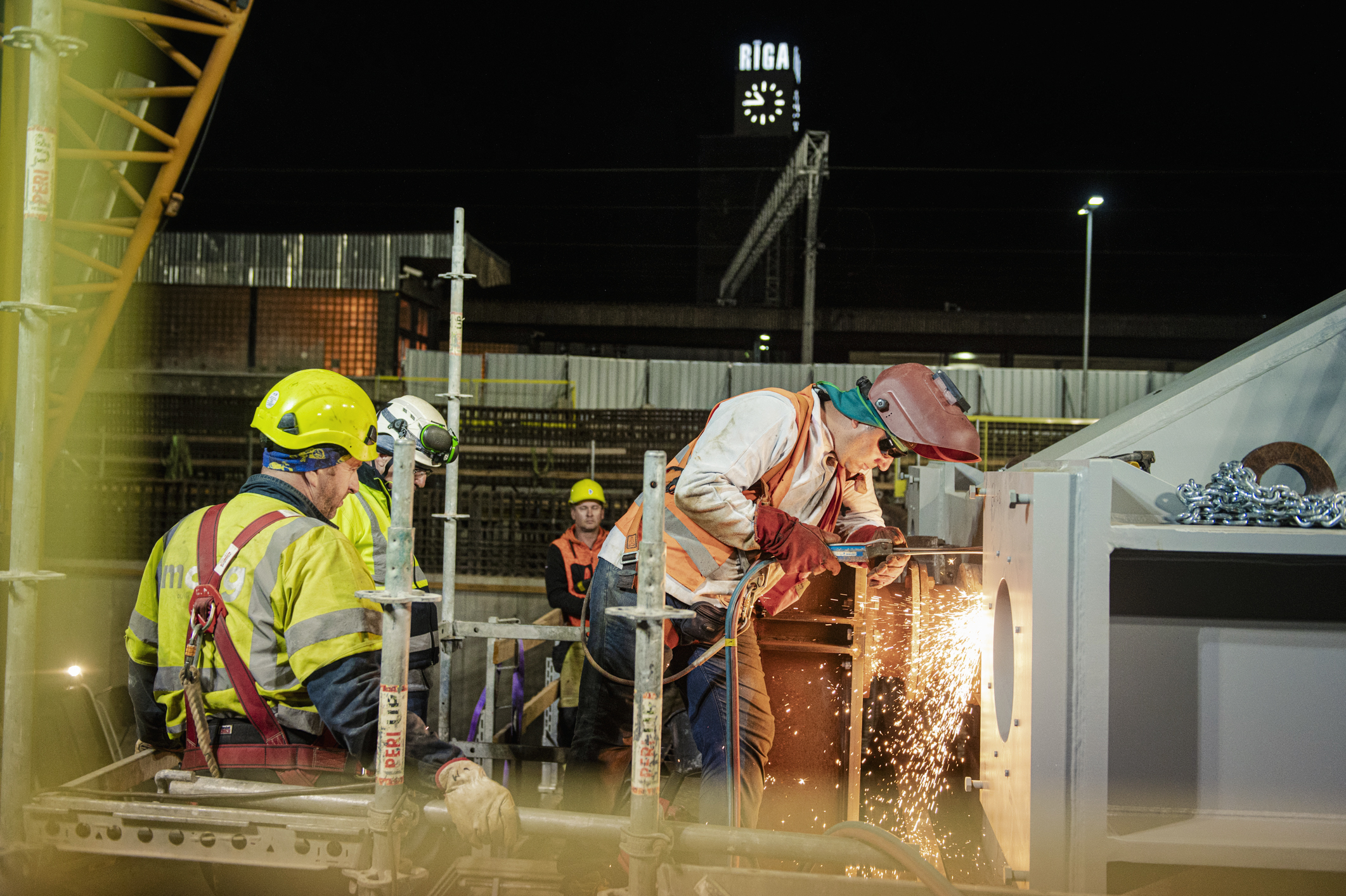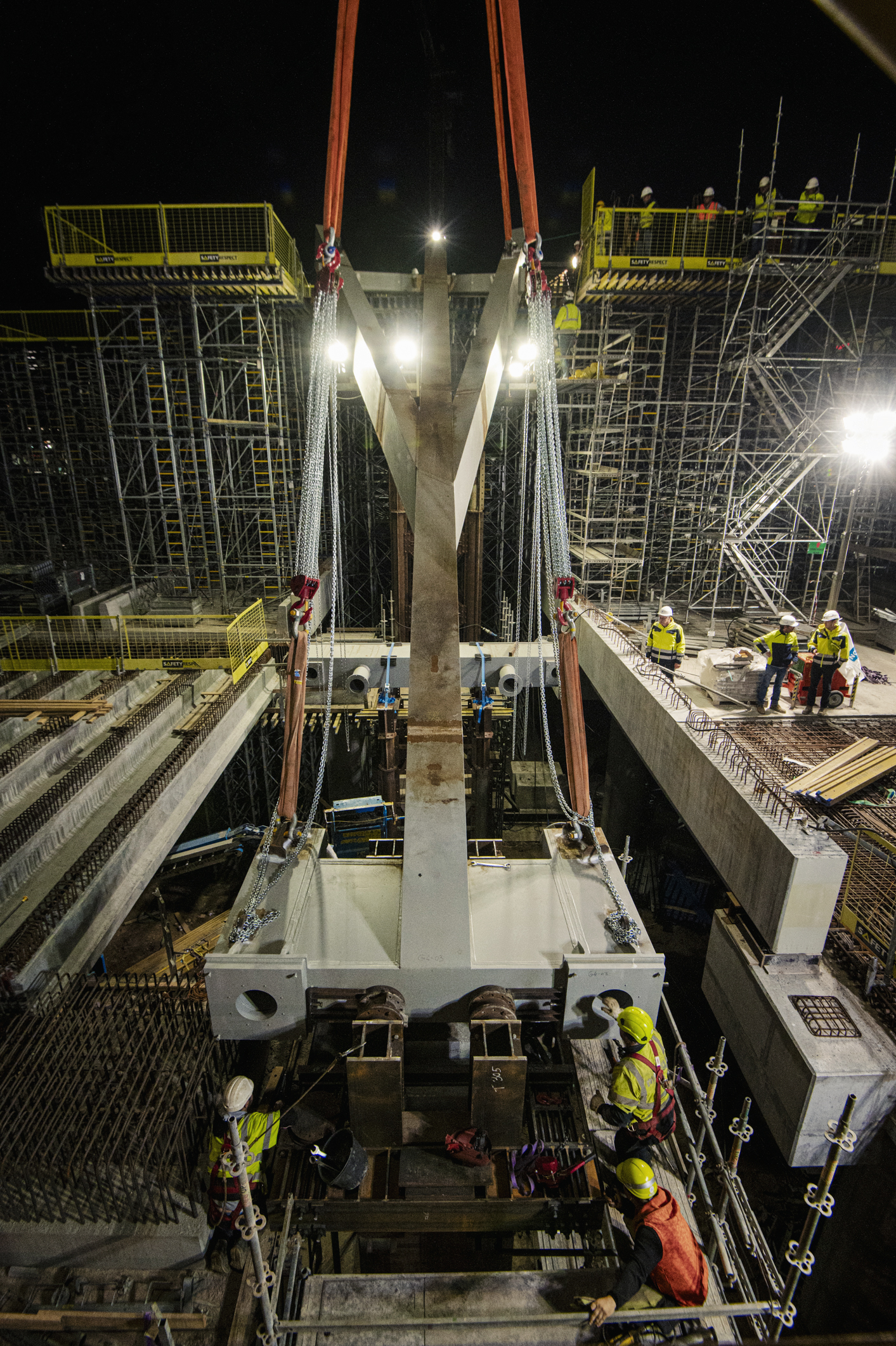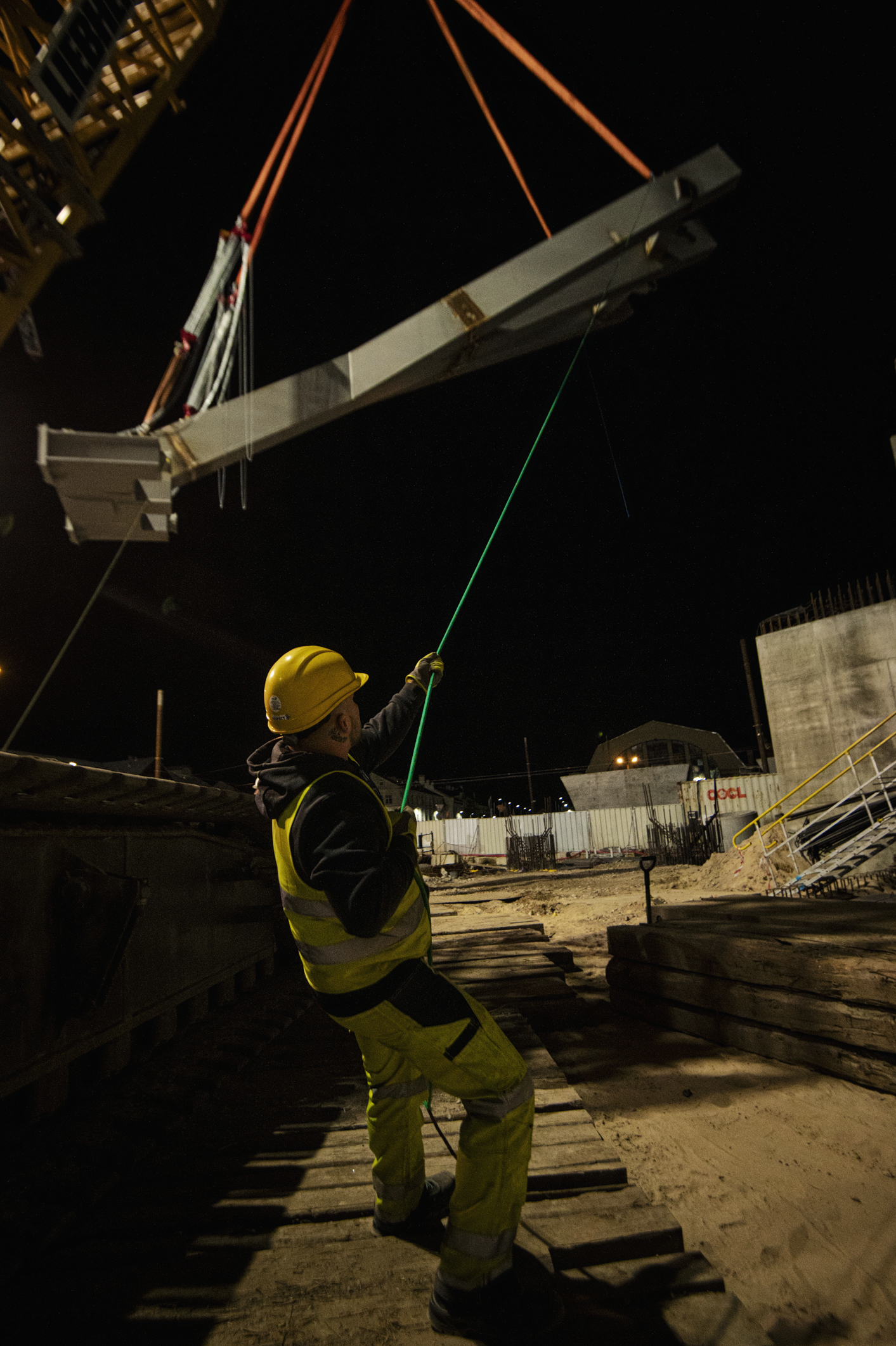Rail Baltica project delivery organization in Latvia, Eiropas Dzelzceļa līnijas, has announced the latest milestone in the construction of the Rail Baltica Riga Central Hub. The installation of the initial arch footprints for the railway station building has now commenced. This step marks the beginning of the construction of the station’s roof structure, further defining its shape. By the end of fall 2023, a total of 8 such structures are planned to be installed in the southern zone of the station, with work scheduled both during the night and daytime. The highest point of the station’s roof will reach almost 30 meters.
The first three arch footprints will be installed in the upcoming months on the western side of the future Rail Baltica international passenger terminal, with each structure weighing between 38 to 41 tons. Due to the large and heavy nature of individual components of these structures, they are assembled and joined on-site over several days, as they are too large to be transported to the construction site in one piece. For the transportation of the structures within the construction site, a self-propelled modular transporter system is used. Subsequently, these arch footprints are lifted to their required positions above the railway platform level using the currently largest crawler crane in the Baltic region,
In the upcoming months, BERERIX, the company responsible for construction, will continue to work on concrete paving for the railway tracks and construct passenger platforms between the already built tracks in the future Riga Central Railway Station area. Additionally, three steel arch footprints will be installed on the eastern side of the future station, and two will be placed in the southern part, each weighing approximately 65 tons.
The station area represents the most extensive and technically complex portion of the Rail Baltica Riga Central Hub. In the coming months, the project delivery organizations plan to complete the concrete paving for the railway track bed on the 3rd floor and install the initial elements of the roof structure – the framework upon which the building’s roof will later be installed. The new station’s roof structure consists of thousands of steel bars interconnected with steel nodes.
About the New Rail Baltica Riga Central Railway Station:
As a result of the Rail Baltica project, Riga Central Railway Hub will become the largest passenger service facility in the Baltic States, offering the opportunity to travel to any destination in Latvia and Europe. During the station’s design phase, special attention was given to energy-efficient technologies, sustainable solutions, passenger comfort, and safety (explosion-resistant structures, equipping the building’s ventilation system with detectors and filters for hazardous chemical and biological substances, etc.).
The new station will be user-friendly and accessible to everyone, offering a host of amenities for both Riga’s residents and city visitors. These include 23 escalators, 16 elevators, 25 new staircases to access the platforms, and a tactile paving system that stretches across the Rail Baltica project area and the station building, providing clear tactile guidance from public transportation stops all the way to the train platforms.
The station will have a total of 8 platforms and 14 tracks, as well as elevated platforms for easier boarding. The upper station level will include waiting areas covering approximately 6500 square meters, featuring ticket counters, information boards, and various services.
Access to the station will be available from all directions, and a new “kiss & ride” street nearby will provide a safe spot for passenger drop-offs and pick-ups. Additionally, the introduction of air-to-rail baggage handling and flight registration will improve travel experience. Furthermore, micromobility options will be expanded with the addition of new cycling paths, bicycle storage facilities, and the availability of shared micromobility devices.
The implementation of the Rail Baltica project is financed by the national states — Estonia, Latvia and Lithuania — and co-funding from the European Union up to 85% of the total eligible costs, in the framework of the Connecting Europe Facility (CEF) funding instrument.

